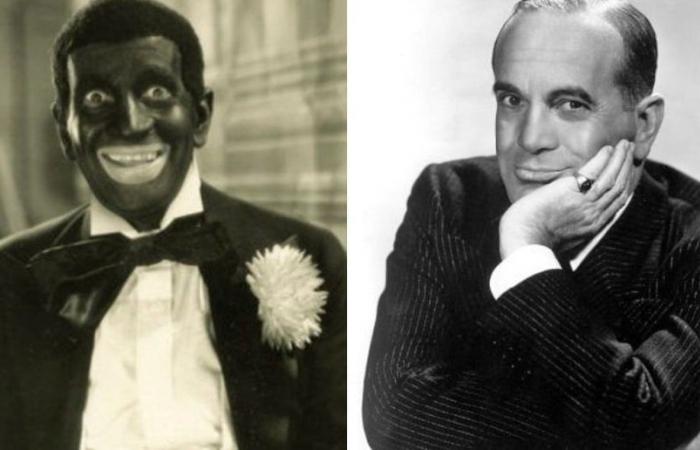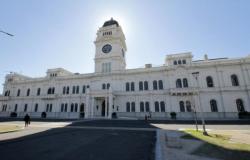Sunday 16.6.2024
/
Last update 22:37
Intimate disquisitions on journalism, entertainment and forms of communication. Mates in the kitchen, Al Jolson and Jorge Corona. That’s how distracted we are. In September 1959 I covered a local soccer league match in Santa Fe. It was easy to get to the Colón field, a bus line led directly from the center to La Boca del Tigre. Another brought us back to the very center, where LT9 was, on San Martín Street. High school days and quarterly tests that authorized this deviation. It became the main route.
I took the formations, through the only phone (in the locker room) I sent the partial of the first half, I announced the end and when Mr. Pedro Acchiardi returned he told me: “Pibe… good game, or are you bored?” The match ended zero to zero. The lesson lives on: the journalist asks and reports because someone wants to know the answers. Don Pedro, with his bow, his “papillón”, asked if he had bored me. The journalist, without meaning to, also judges; In any case, in what he asks, there is the judgment he makes. Hence the forgetfulness and questioning. Journalism is not foolish innocence. Never.
So many years of journalism have consolidated this doubtful conscience: what I ask defines me and in my questions there is a judgment. Every way out is the same for the return. The interviewees do not like some questions, they avoid others and, with certain journalists, they do not talk. Free choice of conformity and fears. Everything is a quest to return to the path of doubtful conscience. Those who refuse define themselves. There is nothing hidden at the end of the path, both on the way there and back.
They are all circumstantial officials of a wrong river, Argentine democracy and its national, provincial and municipal setbacks and setbacks. I can mention the current ones, but I can also give the names of all the mayors, governors and, in some cases, the presidents, some of whom were when they were climbing the path and others when they reached the top, finally I have seen them all. on the way back. They me too. We reproduce Neruda: “We, those of then, are no longer the same.”
One anecdote is enough. I met NK at a berreta pizzeria owned by “El Pizzero”, an old friend of the Santa Cruz native who was selling his friendship with that atrabiliary candidate. NK was unique. He was ugly and determined. “Come see…” all lies, obviously. The nature of the phenomenon is human behavior. The substance is this: they should answer things that perhaps they do not want to be asked and there is a simple, simple excuse that is understandable: the protocol allows those who are not civil servants to be told four truths at once, because there is no protocol that scares you but, heck, when they are officials they dress themselves in jasmine and you just have to smell them, without daring to discuss whether the water in the vase is pure.
“Hello President”
That fantasy, almost a puppet, a show of a Central American leader, so bachata and so bachata, takes it to the extreme that the monologue with the listeners, viewers, passive “listeners” is not just a one-way route, but it is a path that The owner sweeps and takes care of it. A single hand. It is an interview attended by its own owner. A president installed it.
Javier Milei is demonstrating, day after day, that the forms change, but not the weapon: I am alone and I say what I want, I open the door to whoever I want and strike down with a flaming lightning bolt. It is necessary for journalism, all journalism, to understand that the vehicle of arrival of those who hold formal power and want to exercise it has changed. “Kid… good game or bored?” The very veteran host and producer of that program (“Audición Deportiva”) would ask to retire or he would adapt, he would tame himself, he would become “amancebated.”
Many of the colleagues who interview the president are “young men”, like that of the Spanish picaresque: “A young man who married a brave woman.” Strictly speaking, we must understand that whoever hears, admires, loves or hates and, finally, whoever votes, is part of a direct channel that after The Plague was defined in the world: “There is a message that I, the first person, send. You see, you hear it… well, done.” The others don’t play.
Warning, as long as the code indicates that the vote is what defines and it is understood that formal power is very respectable but, but, but… but the real decisions come behind and, furthermore, maintaining this game of entertainer, of showman, of government “from the stage” is what it is, journalism is another spectator. We see the stage and, perhaps, we know the end of the play, but applauding is not necessary, because it is virtual. Everything is an “onanistic virtualism” that makes us superfluous and yes, of course yes, the questions bother and we cannot ask them but… for what?
The one who played ball with me
In many cases the journalist cannot understand or understand and refuses to allow that, understanding, to put him in his job: to ask. Happens. I confess, it often happens to me. A governor who leaves and it is clear, the governors’ officials are appointed by the governor and he is responsible. I insist: there are no ministers, secretaries, officials who drove the car, who audited a road, a highway, a television channel, who bought and distributed chickpeas, who controlled tenders that do not depend on the only one voted, the binomial. A minister who spies does so in the name of the governor. A delegate who alters the price of noodles does so in the name of the governor and the one who buys a car or rents a television screen, a theater or a trip does so in the name of the governor.
Why can’t each of them be asked if what they did was done well, in accordance with honesty? Why can’t you, huh? The journalist is the one who asks the questions. “Cheee, you went too far… how are you going to ask me that… stop!” (The emphasis on the written text is necessary, sorry for the poor writing and lack of respect for Spanish).
In many cases the neighborhood, the same school, the same cafe, a known girlfriend and a couple to meet deny distance; There are cases in which the same tribune to shout a goal prevents the distance, the strangeness, the necessary drive, the courage to ask.
The show must go on
A white Jew of Lithuanian origin, dressed in black and acting with excess, was one of the icons of the fusion of cultures in Yankeeland. Asa Yoelson was the son of a rabbi and painted his face to act like Al Jolson. In his way it is a characterization of the costume that Argentina proposes and that Milei offers. A parody of what “is not”, embodied by someone who does not want to be what he is forced to be. He embodies it – he disguises, sells, cajoles – with the singer’s signature phrase: “Wait a minute, wait a minute, you haven’t heard anything yet.” Thus he closed his performances, promising the best for tomorrow.
Milei, with those emphatic definitions in terms of faith and his promises of tomorrow, is, in part, Al Jolson: a disguise within another disguise, hiding elementary issues. His was the first sound film: “The Jazz Singer” (also broadcast as “The Jazz Singer”). Milei is the first post-plague president, the first to be defined by a change in communication between men. Let’s ask the question: Would Milei admit to being compared to “The Jazz Singer”?
An unstoppable neighborhood phenomenon was, around the end of the 60s, Jorge Corona. Alejandro Romay returned to the El Nacional theater and imagined as first dancer Alfredo Alaria, the one from Lido de Paris (whose full name was Oscar Alfredo Alaria de Paula), and Libertad Leblanc emerging from a bathtub full of foam, which was lowered onto the stage… and the monologues of Jorge Corona, who even then said his phrase: “Can you say bad words”?
Alaria accused of an Achilles tendon (fear of failure for someone who had been very big), never lowered the bathtub with foam and Libertad Leblanc, who had a tight “jersey” for her affairs, refused the final role. Corona did her first monologue, she did her second. Applause. He was brilliant, daring, ribald. He had to act as the “opening act” due to the bumps caused by those failures. And then a third monologue and a fourth, with ballet numbers in the middle and his excesses in dressing rooms to give himself chemical breath.
But… what was a surprise from the neighborhood phenomenon and the insults became a chorus from the audience; many guests who could have been angry, became angry. They even threw one of his shoes onto the stage. Attest. In some hilarious moments of his monologues, I see a shadow of Jorge Corona in Milei. From the best foul-mouthed comedian. Alone on stage. In Argentina trade/politics is different. The Argentine rulers are bothered by the question. Any question. Understanding that politics is commerce, of course. That the State should not exist and the best thing is The Company.






